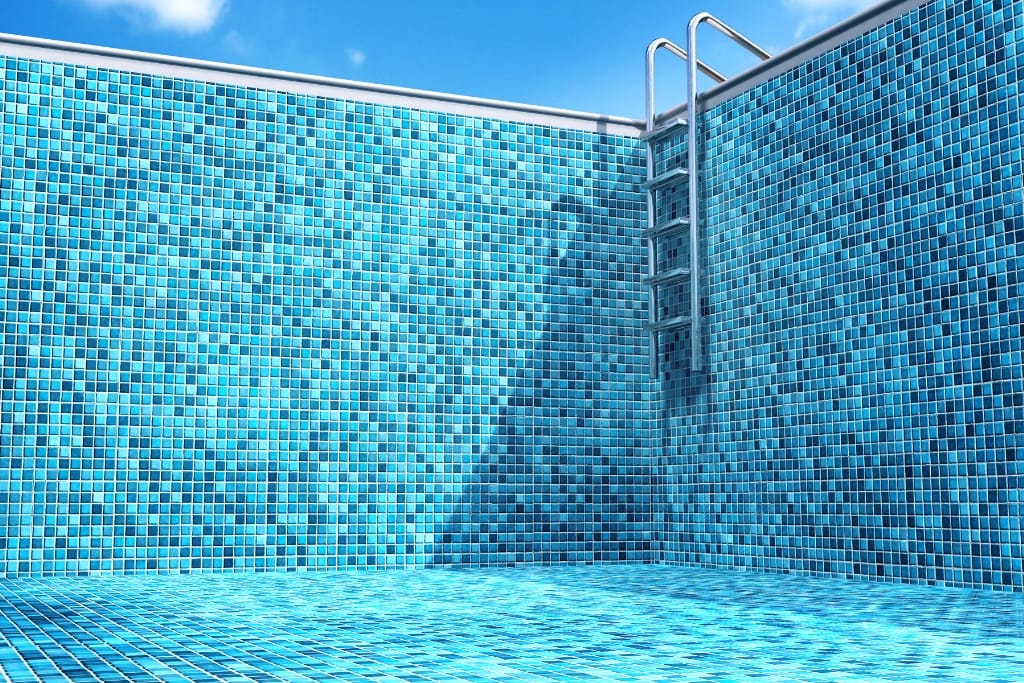Maintaining a pristine pool can feel overwhelming when faced with conflicting advice about cleaning pool tiles.
It's easy to be swept away by the flood of myths that circulate, leaving pool owners unsure about the best practices for care and upkeep.
These myths can lead to unnecessary expenses or even compromises in the quality and longevity of your pool tiles.
To help pool owners separate fact from fiction, we've debunked the top five myths about pool tile cleaning.
Read on to discover truths that will simplify your maintenance routine and protect your investment.
1)) Pool Tiles Only Need Cleaning During Pool Opening Season
Believing that pool tiles only require cleaning during pool opening season is a common misconception that can lead to issues down the line.
Throughout the year, pool tiles are consistently exposed to various elements such as algae, dirt, and mineral buildup that can mar their appearance and even lead to lasting damage if not addressed regularly.
These contaminants tend to accumulate, becoming increasingly difficult to remove as time passes.
Routine cleaning, regardless of the season, ensures that contaminants are kept in check, preventing discoloration and preserving the tiles' integrity.
Regular attention to your pool tiles year-round can save both time and costs associated with more intensive maintenance, making it clear that periodic cleaning is an integral part of pool care.
2)) All Pool Tile Cleaners Are The Same
Another widespread myth is the belief that all pool tile cleaners are identical and interchangeable.
In reality, pool tile cleaners vary significantly in their composition, effectiveness, and suitability for different types of tiles and conditions.
Some cleaners are designed to tackle specific issues such as calcium deposits, while others may be formulated for general grime and algae control.
Selecting the right cleaner involves understanding the needs of your pool's tiles and the particular challenges they face, such as the water's hardness level or the frequency of use.
Using the wrong cleaner might not only be ineffective but could also damage delicate tiles or make future cleaning more arduous.
Therefore, relying on a one-size-fits-all approach can be costly in the long run.
Taking the time to choose a cleaner that is specifically tailored to maintaining your pool tiles will ensure they remain in excellent condition, prolonging their beauty and durability.
3)) Regular Household Cleaners Can Be Used On Pool Tiles
Using regular household cleaners on pool tiles is a misconception that can potentially harm your pool's surface.
Household cleaners are not formulated to withstand the unique chemistry of pool water, which can result in ineffective cleaning or even damage.
Many of these products contain ingredients that, when mixed with pool water, can lead to harmful chemical reactions or leave residues that affect water balance.
Over time, this could wear down tile surfaces, causing them to lose their luster and structural integrity.
Instead, specialized pool tile cleaners are crafted to address common issues like calcium build-up or algae without upsetting the delicate balance of pool chemistry.
By avoiding the use of regular household cleaners, you ensure that your pool tiles remain pristine and well-maintained, safeguarding your swimming environment for the long term.
4)) Pool Tile Cleaning Is A DIY Friendly Job For Everyone
While many pool owners may be eager to take on pool tile cleaning as a do-it-yourself project, the reality is that it may not be suitable for everyone.
Cleaning pool tiles requires not only the right tools and cleaners but also a foundational understanding of pool maintenance principles.
Engaging in this task without adequate knowledge can lead to improper cleaning techniques, which might inadvertently harm the tiles or compromise their appearance.
Certain tile issues, like extensive calcium scaling, can demand special attention and expertise to ensure effective and safe removal.
While there are certainly elements of pool care that can be managed with a DIY approach, consulting with professionals for tasks like tile cleaning can often yield better results and prevent costly mistakes.
By recognizing the limits of DIY maintenance, pool owners can ensure their tiles receive the care and attention they need for long-lasting beauty and function.
5)) Pool Tiles Do Not Affect Pool Water Quality
Assuming that pool tiles have no impact on pool water quality is a misconception that could lead to undesirable swimming conditions.
Pool tiles can influence water chemistry in several ways, especially if they are not properly maintained.
The buildup of debris, algae, or mineral deposits on the tiles can harbor bacteria and other pathogens, potentially leading to murky water or even health issues for swimmers.
This accumulation can affect the balance of chemicals in the water, making it more challenging to maintain optimal chlorine levels and pH balance.
Stained or dirty tiles contribute to an unattractive pool environment, signaling underlying water quality issues.
Regular cleaning and maintenance of pool tiles ensure that the entire pool ecosystem remains healthy, demonstrating that tile condition and water quality are intrinsically linked.
Conclusion
Maintaining clean and well-kept pool tiles is essential for the overall health and appearance of your pool.
While tackling myths about pool tile care, it becomes evident that thoughtful selection of appropriate cleaners and recognizing the limits of DIY efforts can significantly impact the pool's maintenance and efficiency.
Understanding the integral role that tiles play in water quality can help pool owners take proactive measures to preserve their pools' conditions.
Prioritizing professional guidance when needed ensures that both the aesthetic and functional aspects of your pool are upheld, providing a safe and enjoyable swimming environment for everyone.
Download Our Free E-book!








